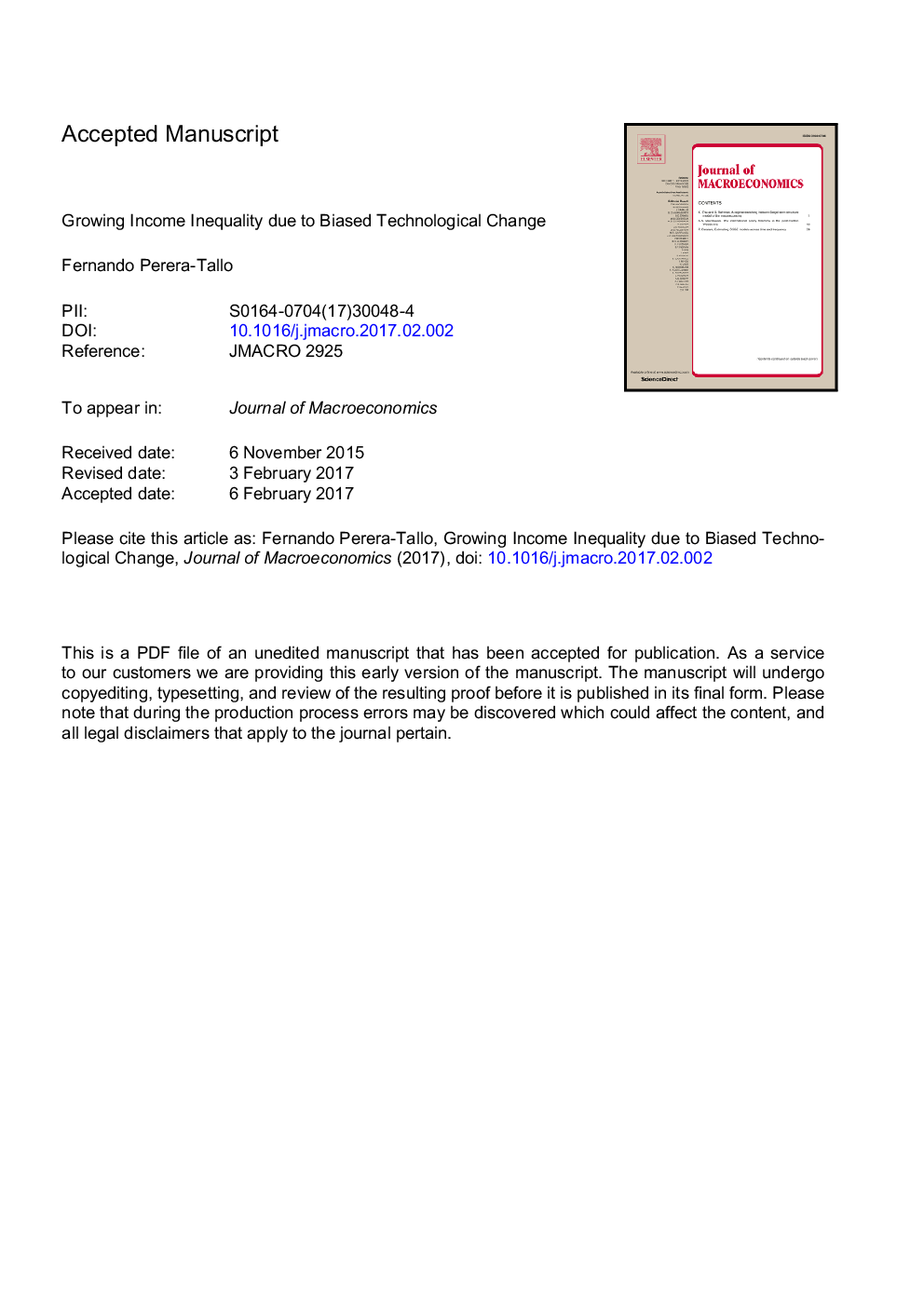| Article ID | Journal | Published Year | Pages | File Type |
|---|---|---|---|---|
| 5101284 | Journal of Macroeconomics | 2017 | 37 Pages |
Abstract
Inequality is rising in many countries. This paper presents a growth model in which technological change increases the income share of reproducible factors at the expense of non-reproducible ones. Agents are heterogeneous in wealth. Preferences imply that the saving rate increases with wealth. Consequently, assets (reproducible factor) are less equally distributed than raw labor (non-reproducible factor). This implies that technological change raises the share of the less equally distributed factor, increasing inequality along permanent growth path. When reproducible factors and the state of know-how are low, to adopt new technologies is not profitable, learning-by-doing and technological change ceases, arising stagnation.
Related Topics
Social Sciences and Humanities
Economics, Econometrics and Finance
Economics and Econometrics
Authors
Fernando Perera-Tallo,
